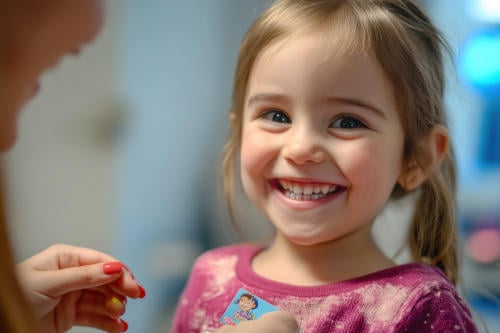Learners with autism face additional challenges and need consistent help to unlock their full potential. However, whilst we must help autistic learners overcome potential difficulties, we should also remember to celebrate their progress.
“Celebrating milestones—both big and small—is a crucial aspect of supporting children with autism.” https://autismlearnplay.org/2024/10/04/celebrating-milestones-big-and-small-in-the-life-of-a-child-with-autism/
Why is Celebrating Progress Important?

Celebrating progress matters. Particularly, for autistic learners, it can bring a reaffirmation of positivity and confidence.
Acknowledgement of accomplishments can have many results, for example:
Inspiration – it can be hard to persevere with certain tasks, especially if faced alongside difficulties. Recognition of success can lift a child’s mood, inspiring them to continue.
Instigate positive thoughts and actions – some children with autism may become despondent at school. Reminding them of their achievements, no matter how small, can lift their perspective and potentially influence what happens next.
Starting a domino effect – a boost or a reward for a brilliant effort can reaffirm a pupil’s belief that their efforts are paying off, subsequently lifting their mindset. It can, in turn, encourage a culture where achievements become more real for a child as they experience new targets being reached. This could nurture more situations where further goals are accomplished, and so the process continues.
Alleviating stress – some autistic learners worry about their abilities. Celebrating the highs can reduce some of their anxiety and remind them that their determination is paying off.
Strengthens self-worth – to hear a trusted adult recognise a positive work outcome can influence an autistic student’s self-worth, helping to build an internal sense of validation.
Celebrating Progress & Creating Memories

Dani, from Eastcote, Middlesex, recalls a long journey with her son Samir, who has autism, “Samir needed to pass his GCSE English to be admitted onto the college course he had his heart set on. He took the exam several times and kept just missing the required level. His resilience was remarkable; I kept wondering if another similar experience would dampen his spirits.”
“I remember the day he passed. We couldn’t stop smiling. It almost felt like all the past disappointments were worth it to feel this good. We celebrated a lot that week – I will always remember it as a huge milestone.”
There is no right or wrong way to celebrate success. As a parent or teacher, you may know what your child/learner would prefer.
For younger children, positive reinforcements such as small rewards or stickers/certificates could be all that is required to make some learners feel supported.
Marie is a learning support assistant at a high school in Mill Hill, Barnet. She has been working closely with Raif for 9 months. She explains, “Raif has autism, which can be a struggle for him in a mainstream setting. In particular, the culture of drama lessons was overwhelming for him. With the objective of keeping him in the classroom, I structured movement breaks where, using a ‘Now’ and ‘Then’ board, he would join the class for a few minutes, knowing that a movement break was approaching. During his break, he would draw or use the computer and then rejoin the lesson.
“Accompanied with praise throughout, this has been very successful. When he rejoins the lesson, his group incorporate a signal to Raif in their sketch, such as one student falling on the floor. This is his cue to join in with a specific line, such as:
‘Let’s get out of here!’
The group then hold a freeze frame and continue with the sketch.
Each time this is a success for him, I always talk to him about how well he did. I can see that he thrives on the positive comments.”
Raif now participates in drama and feels included. Marie has also noted he is now more talkative during movement breaks, whereas he was previously silent.
“I feel positive that the continual praise he receives leads to more success. During movement breaks Raif now talks to me much more than previously; I feel that without the praise he may not have been able to do this so easily.”
Celebrating Progress Works Wonders

As mentioned above, praise is a celebratory tool that we have at our disposal. When reflecting on Marie’s examples, we see praise being used frequently and effectively, leading to more examples of success, aka the domino effect.
For some children, verbal feedback may become overwhelming and success can be celebrated in other ways; the creation of a wall display goes a long way to validate progress. A child is likely to feel valued when they see their work on view for everyone to see.
Other ways to celebrate could be more notable, such as a long-awaited gift, a trip to the cinema or a family meal in their honour. For older learners, a celebration could come in the form of something specific that they have wanted for some time.
The appropriate way to celebrate success depends on the achievement and the child; there’s no definitive route or one size fits all and you will know your child best!
However you choose to celebrate a child’s progress, no matter how big or small, the key is to celebrate in one way or another; your child deserves it, and so do you!
Please note: The information provided within this blog, by SENsational Tutors, is for general information purposes only. We appreciate that every person is unique and any advice/experiences mentioned within the content of each blog may not be reflective of your own personal experience. All information on the site is provided in good faith and is for educational informational purposes only. It is not a substitute for professional advice. Before taking any actions based upon such information, we encourage you to consult with appropriate professionals.




